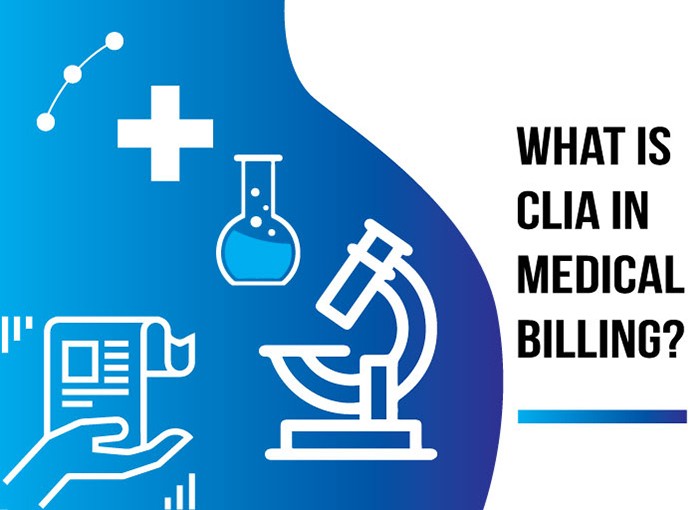WHAT IS CLIA IN MEDICAL BILLING?
The Clinical Laboratory Improvement Amendments (CLIA), was driven by Congress in 1988 to ensure quality laboratory testing. Under this, laboratories required certification by their state and the Center for Medicare and Medicaid Services (CMS) before accepting specimens from humans for diagnosis, treatment of disease, prevention, or health assessment.
CLIA certificates apply to all laboratories, even to perform one test basis the kind of diagnosis they conduct to ensure the accuracy and reliability of patient test results. It is a user-fee funded program and isn’t Medicare exclusive. Having said this, all costs are managed by the federal agencies.
CLIA Quality Requirements
As per CLIA, standards to assess patient test management, proficiency testing (PT), quality control & assurance, and cytological specifications to provide any information. CMS (Center for Medicaid Services) issues laboratory certificates and fee collection. It also approves private accreditation for audits and exempt states. CMS oversights the guidelines for surveyors, fee collection, enforcement, inspections, and consent for PT(proficiency testing) providers. CDC (The Centers for Disease Control and Prevention) provides technical assistance & analysis and ensures the CLIA studies comply.
CLIA Number
Upon certification, a ten-digit alphanumeric character gets assigned to the laboratory site. CLIA number filled in block 23 of Form CMS-1500 manually or documented electronically.
FDA
It decides the test categorization based on complexity. Laboratories that only conduct waived tests (list of the waived tests found on the FDA website) are certified by the certificate of waiver. On-site inspections are not mandatory unless compliance.
Applying for a CLIA certificate
Any laboratory performing tests on materials derived from the human body have a CLIA certificate available through the CMS CLIA website. The completed application (Form CMS-116) gets forwarded to the local state agency as per the laboratory (servicing & billing) location. A billed laboratory service that holds a CMS verification does not require formal certification. Currently, New York & Washington have approved programs. Each laboratory location needs a separate CLIA certificate unless the facility qualifies for:
- Temporary testing location,
- Mobile units performing laboratory testing,
- Local government conducting public health testing,
- Health screening fairs.
For providers who do not meet the CLIA criteria, their claims get denied.
When to begin testing?
Once CMS receives the payment subject to the certification, you will receive the CLIA number, upon which you may begin testing.
Types of Certifications
CLIA certificates are of five different categories.
- Certificate of Waiver– Laboratories that only conduct waived tests.
- Certificate for Microscopy– Laboratories performing specific microscopy procedures that have moderate complexity are issued a certificate for provider performed microscopy.
- Certification of Registration– The issued laboratory can perform non waived tests on moderate to high complexity within compliance.
- Certificate of Compliance– After the state department of health inspects compliance, the laboratories can conduct nonwaived (moderate to high) tests.
- Certificate of Accreditation– The credentialed laboratory that is certified by an approved accredited organization ensures the performance of the laboratory test. CMS-approved laboratory accreditation organizations are the American Osteopathic Association, AABB, COLA, College of American Pathologists, and ASHI.




